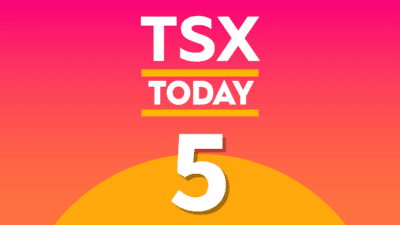Canada’s inflation rate increased to 3.6% in May — the highest rate since 2011. The cost of living is undergoing a massive shift upward. From fuel to groceries, you should expect to pay more for the foreseeable future. This flare-up could also impact stocks and real estate. Here’s what investors need to know.
How high will inflation surge?
The official rate is the highest it’s been in a decade. A similar wave is engulfing the rest of the planet, with official inflation surging as high as 5% in the United States. The trillion-dollar question right now is the duration and intensity of this inflationary wave.
That’s the subject of a heated debate. Economists and central bankers believe the higher rates are temporary. They argue that inflation dipped historically low last year, when the economy was shut down. Now that we’re reopening, there’s a temporary supply/demand imbalance that should clear up by 2022.
Some investors and consumers, however, disagree. They argue that central banks have been printing too much cash for too long. That has permanently devalued the currency and inflation could spin out of control in the years ahead.
What should you do?
Your investment decision in 2021 depends on which camp you agree with. If you believe inflation is transitory, this is an opportunity to add more growth stocks to your portfolio. If you believe this is a prolonged crisis, you should probably seek safety.
Growth stocks like Canada Goose Holdings (TSX:GOOS)(NYSE:GOOS) are probably suffering from valuation compression because investors are concerned. Rising costs of raw materials could impact Goose’s bottom line. Meanwhile, the higher cost of living leaves less disposable income to spend on luxury coats.
However, if the inflation is transitory, Canada Goose should see its valuation jump higher. Its growth strategy in China becomes more appealing as investors regain their appetite for risk.
At the moment, Canada Goose stock is trading at a forward price-to-earnings ratio of 26. That should be higher, if inflation subsides.
Flight to safety
If you believe this is a persistent crisis, you may want to protect your assets. If the value of your currency drops it offsets the gains you make on the stock market. In fact, some stocks drop when the cost of raw materials rise rapidly.
Industries that have pricing power or are based on hard assets tend to perform well during high inflation. NorthWest Healthcare Properties (TSX:NWH.UN) is a great example. The company manages healthcare properties that are leased out on long-term contracts to clinics and hospitals. This business is insulated from the rest of the economy.
The value of commercial real estate should keep up with inflation, which makes this an ideal target for investors. Plus, the 6.2% dividend yield should offset any loss of buying power in the foreseeable future. This is a safe haven.







